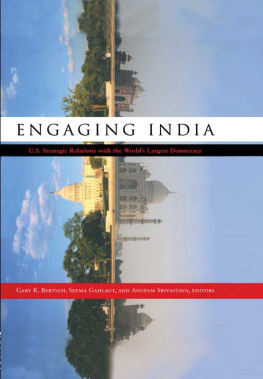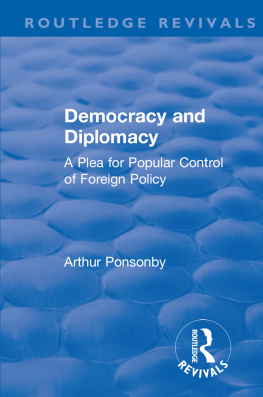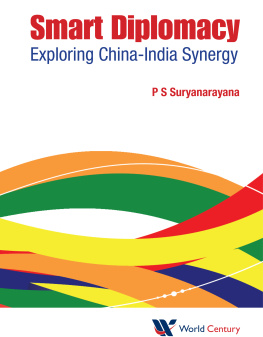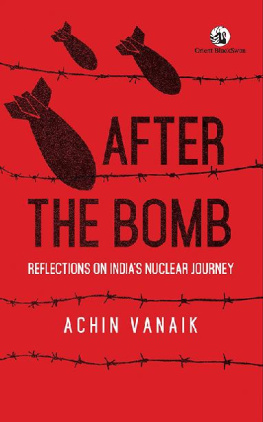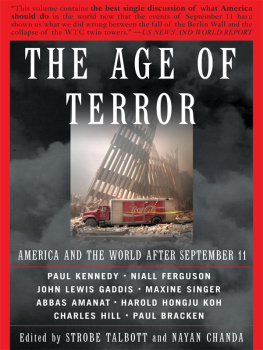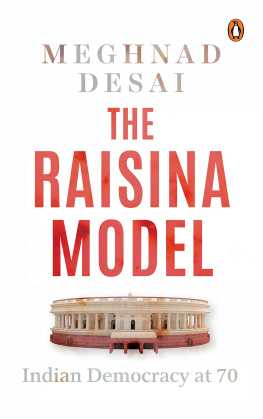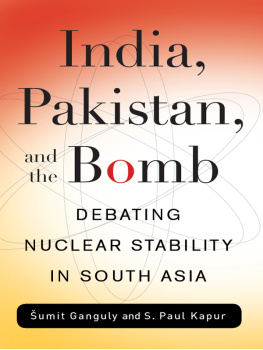Strobe Talbott - Engaging India. Diplomacy, Democracy and the Bomb
Here you can read online Strobe Talbott - Engaging India. Diplomacy, Democracy and the Bomb full text of the book (entire story) in english for free. Download pdf and epub, get meaning, cover and reviews about this ebook. year: 0, publisher: Brookings, genre: Politics. Description of the work, (preface) as well as reviews are available. Best literature library LitArk.com created for fans of good reading and offers a wide selection of genres:
Romance novel
Science fiction
Adventure
Detective
Science
History
Home and family
Prose
Art
Politics
Computer
Non-fiction
Religion
Business
Children
Humor
Choose a favorite category and find really read worthwhile books. Enjoy immersion in the world of imagination, feel the emotions of the characters or learn something new for yourself, make an fascinating discovery.

- Book:Engaging India. Diplomacy, Democracy and the Bomb
- Author:
- Publisher:Brookings
- Genre:
- Year:0
- Rating:5 / 5
- Favourites:Add to favourites
- Your mark:
- 100
- 1
- 2
- 3
- 4
- 5
Engaging India. Diplomacy, Democracy and the Bomb: summary, description and annotation
We offer to read an annotation, description, summary or preface (depends on what the author of the book "Engaging India. Diplomacy, Democracy and the Bomb" wrote himself). If you haven't found the necessary information about the book — write in the comments, we will try to find it.
Engaging India. Diplomacy, Democracy and the Bomb — read online for free the complete book (whole text) full work
Below is the text of the book, divided by pages. System saving the place of the last page read, allows you to conveniently read the book "Engaging India. Diplomacy, Democracy and the Bomb" online for free, without having to search again every time where you left off. Put a bookmark, and you can go to the page where you finished reading at any time.
Font size:
Interval:
Bookmark:

00 8300-0 frontmatter 6/29/04 5:34 PM Page i engaging
I NDI a
00 8300-0 frontmatter 6/29/04 5:34 PM Page ii A l s o by S t r o b e Ta l b o t t
The Russia Hand
At the Highest Levels
(with Michael Beschloss)
The Master of the Game
Reagan and Gorbachev
(with Michael Mandelbaum)
Deadly Gambits
Reagan and the Russians
Endgame
The Age of Terror:
America and the World after September 11
(edited with Nayan Chanda)
e d i t e d a n d t r a n s l at e d
Khrushchev Remembers: The Last Testament
Khrushchev Remembers
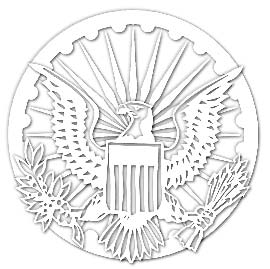
00 8300-0 frontmatter 6/29/04 5:34 PM Page iii
engaging
I NDI a
Diplom ac y, Democrac y,
and the bomb
s t r obe tal bo t t
brookings institution press
Washington, D.C.
00 8300-0 frontmatter 6/29/04 5:34 PM Page iv Copyright 2004
the brookings institution
1775 Massachusetts Avenue, N.W., Washington, D.C. 20036
www.brookings.edu
All rights reserved
Library of Congress Cataloging-in-Publication data
Talbott, Strobe.
Engaging India : diplomacy, democracy, and the bomb / Strobe Talbott.
p.
cm.
Includes bibliographical references and index.
ISBN 0-8157-8300-0 (alk. paper)
1. United StatesForeign relationsIndia. 2. IndiaForeign relationsUnited States. 3. United StatesForeign relationsPakistan. 4. PakistanForeign relationsUnited States. 5. Atomic bombIndia. 6. Atomic bombPakistan.
7. IndiaMilitary policy. 8. PakistanMilitary policy. 9. Talbott, Strobe. I. Title.
E183.8.I4T35 2004
327.73054'09'049dc
222004012803
2 4 6 8 9 7 5 3 1
The paper used in this publication meets minimum requirements of the American National Standard for Information SciencesPermanence of Paper for Printed Library Materials: ANSI Z39.48-1992.
Typeset in Adobe Caslon
Composition by Cynthia Stock
Silver Spring, Maryland
Printed by Phoenix Color
Hagerstown, Maryland
00 8300-0 frontmatter 6/29/04 5:34 PM Page v F o r o n e f a m i ly a n d
t h r e e g e n e r at i o n s o f f r i e n d sAmarjit and Bhagwant Singh
Nayan Chanda and Geetanjali Singh
Amit and Ateesh Chanda
This page intentionally left blank
00 8300-0 frontmatter 6/29/04 5:34 PM Page vii contents
one
The Lost Half Century
1
two
The Desert Rises
23
three
The Mountain Turns White
52
four
Jaswants Village
73
five
Stuck on the Tarmac
89
six
Soft Stonewalling
112
seven
The Avatar of Evil
132
eight
From Kargil to Blair House
154
nine
Sisyphus at India House
170
ten
A Guest in the Parliament
190
eleven
Unfinished Business
Acknowledgments
233
Notes
237
Index
257
This page intentionally left blank
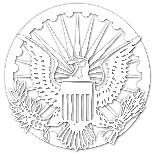
01 8300-0 chap1 6/29/04 5:34 PM Page 1
one
The Lost Half Century
When I arrived for work that damp, overcast morning of Monday, May 11, 1998, I was expecting a relatively normal week, at least by State Department standards. There was plenty to do at the office and plenty to worry about in the world, but nothing that quite qualified as a crisis.
Shortly after 8:00 a.m., I chaired the daily meeting of the departments senior staff. As deputy secretary, I was supposed to keep tabs on what was going on in the building and around the globe. Assembled at a mahogany table in the windowless conference room across from my office on the seventh floor were about twenty assistant secretaries. Their bureaus either covered various geographical regions or sought to advance such global objectives as the promotion of democracy and human rights, the protec-tion of the environment, the struggle against terrorism, and the effort to stop the proliferation of lethal armaments, materials, designs and technologies.
Each official reported briefly on what had happened over the weekend and reviewed what lay ahead. The British government and Sinn Fein, the political wing of the Irish Republican Army, were looking for help in bringing peace to Northern Ireland. A team of American diplomats was in the Balkans trying to avert war over Kosovo. Iraqs deputy prime minister, Tariq Aziz, was barnstorming through Europe, lobbying for an end to the U.S.-led campaign to isolate the Baghdad regime. The annual summit of the Group of Seven major industrial democracies, or G-7, was 1
01 8300-0 chap1 6/29/04 5:34 PM Page 2
the lost half century
coming up later in the week in Birmingham, England. Boris Yeltsin, the president of Russia, would be attending for the first time as a full member of the group, making it the G-8. As the administrations point man on Russia, I planned to spend most of the coming days preparing for the private session that President Bill Clinton would have with Yeltsin in Birmingham.
When the senior staff meeting ended, I returned to my office and settled behind the desk to read the New York Times. I skimmed articles on the front page about the latest Arab-Israeli tensions and drug trafficking in the Caribbean but skipped a feature article about India. That country could hardly have been further from my mind. In government, it is often said, the urgent drives out the merely important. Indiathe worlds second most populous country, its largest democracy, and the most powerful country in a region that is home to nearly a quarter of humanityseemed permanently stuck in the latter category.
At that moment, Phyllis Oakley, the foreign service officer in charge of the departments bureau of intelligence and research, was returning to her own office from the senior staff meeting when her deputy intercepted her in the corridor with the news that India had set off a nuclear device several hours earlier. Phyllis was stunned. How had we learned? she asked. From CNN, she was told. She winced, then rushed back to my office to make sure I had gotten the word. I hadnt. After sitting motion-less for a moment with my eyes closed, I swiveled around in my chair and picked up the handset of the red switch phone behind my desk. The buttons on this clunky device, each labeled with bureaucratic initials, connected me by encrypted lines with my counterparts in other departments and agencies of the government. I punched the button that put me through to John Gordon, a four-star Air Force general who was deputy director of central intelligence at the CIAs headquarters in Langley, Virginia, nine miles up the Potomac River. I assumed John would be able to give me some details on what had happened overnight in India. We had been friends for about ten years, since the first Bush administration, when he had served on the staff of the National Security Council and I had been a Time magazine reporter covering foreign policy. John had just arrived at work, so instead of learning anything from him, I succeeded only in ruining his week just as it started. After hearing what I had to say, he, like me a few moments before, needed at first to absorb the
Next pageFont size:
Interval:
Bookmark:
Similar books «Engaging India. Diplomacy, Democracy and the Bomb»
Look at similar books to Engaging India. Diplomacy, Democracy and the Bomb. We have selected literature similar in name and meaning in the hope of providing readers with more options to find new, interesting, not yet read works.
Discussion, reviews of the book Engaging India. Diplomacy, Democracy and the Bomb and just readers' own opinions. Leave your comments, write what you think about the work, its meaning or the main characters. Specify what exactly you liked and what you didn't like, and why you think so.


